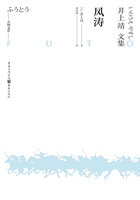I told the Queen, in a private audience, that I was not come only as a deputy from the Church of Paris, but that I had another commission which I valued much more, because I took it to be more for her service than the other,--that of an envoy from the Duc d'Orleans, who had charged me to assure her Majesty that he was resolved to serve her effectually and without delay, as he had promised by a note under his own hand, which Ithen pulled out of my pocket. The Queen expressed a great deal of joy, and said, "I knew very well, M. le Cardinal, that you would at last give some particular marks of your affection for me."The Queen told me that she thanked the Duke, and was very much obliged to him; that she hoped and desired he would contribute towards ****** the necessary dispositions for the King's return to Paris, and that she would not take one step but in concert with him. At the same time I heard that the Queen spoke disdainfully of me, whom she dreaded, to my enemies at Court; pretended that I had owned Mazarin was an honest man, and ridiculed me for the expense I had put myself to on the journey, which, indeed, was immense for so short a time, because I kept seven open tables, and spent 800 crowns a day.
When I returned to Paris I was received with incredible applause. The King also came thither on the 21st of October, and was welcomed by the acclamations of the people. The Queen received me with wonderful respect, and bade the King embrace me, as one to whom he chiefly owed his return to Paris; but orders were sent to the Duc d'Orleans to retire next morning to Limours.
When I went to see him, he was panic-struck, and imagined it was only a feint to try his temper. He was in an inconceivable agony, and fancied that every musket which was let off by way of rejoicing for his Majesty's return was fired by the soldiers coming to invest his palace. Every messenger that he sent out brought him word that all was quiet, but he would believe nobody, and looked continually out of the window to hear if the drums were beating the march. At last he took courage to ask me if Iwas firm to him, and after I had assured him of my fidelity he desired that, as a proof of my attachment and affection for him, I would be reconciled to M. de Beaufort. "With all my heart," said I. Whereupon he embraced me, then opened the gallery door by his bedchamber, and out came M. de Beaufort, who threw himself about my neck, and said, "Pray ask his Royal Highness what I have been saying to him concerning you. I know who are honest men. Come on, monsieur, let us drive all the Mazarins away for good and all." He endeavoured to show both the necessity and the possibility of it, and advised the raising of barricades next morning, by break of day, in the market-places.
The Duc d'Orleans turned to me and said, as they do in Parliament, "Your opinion, M. Dean." I replied: "If I must give it as Dean, there never was more occasion for the forty hours' prayers than now. I myself stand in need of them more than anybody, because I can give no advice but what must appear very cruel and be attended with horrid inconveniences. If Ishould advise you to put up with the injurious treatment you undergo, will not the public, who always make the worst of everything, have a handle to say I betray your interest, and that my advice was but a necessary consequence of all those obstacles I threw in the Princes' way?
And if I give it as my opinion that your Royal Highness should follow the measures which M. de Beaufort proposes, shall I not be accounted one who blows hot and cold in a breath? --who is for peace when he thinks to gain his advantages by the treaty, but for war when he is not permitted to negotiate? --one who is for destroying Paris with fire and sword, and for carrying the flames to the gates of the Louvre by attacking the very person of the King? If you obey, you will be responsible to the public for all it may suffer afterwards. I am no competent judge of what it may suffer in particular; for who can foresee events depending on the caprices of a cardinal, on the stormings of Ondedei, the impertinence of the Abbe Fouquet, and the violence of Servien? But you will have to answer for all, because the public will be persuaded that you might have prevented it. If you do not obey, you may go near to overturn the realm."Here the Duke interrupted me eagerly, and said, "This is not to the purpose; the question is whether I am in a condition, that is, if it is in my power, to disobey.""I believe so," I said; "for I do not see how the Court can oblige you to obey, unless the King himself should march to Luxembourg, which would be a matter of great importance.""Nay," said M. de Beaufort, "it would be impossible."I then perceived that the Duke began to think so too, for it fitted his humour, as he could not endure taking any pains, and, upon this supposition, resolved to stay at home with his arms folded. I said:
"You are able to do anything to-night and tomorrow morning, but I cannot answer how it may be in the evening."M. de Beaufort, who thought that I was going to argue for the offensive, fell in roundly with me to second me; but I stopped him short by telling him he mistook my meaning.















